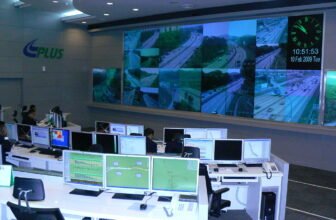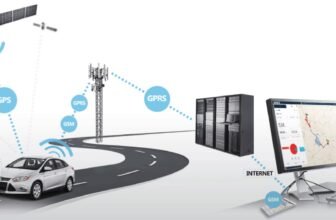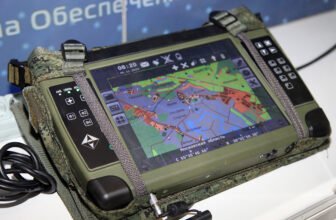
How Satellite Technology is Used in Fleet Management for Logistics Companies
In the dynamic world of logistics, efficiency, safety, and cost-effectiveness are the primary concerns of fleet managers. The rapid advancements in satellite technology have significantly transformed fleet management, enabling logistics companies to optimize operations, enhance vehicle tracking, and improve overall efficiency. In this article, we explore how satellite technology is utilized in fleet management, the various technologies involved, and how IoT is reshaping vehicle monitoring systems. Additionally, we examine the broader impact of technology on fleet management and what the future holds for the industry.
The Role of Satellite Technology in Fleet Management
Satellite technology plays a critical role in modern fleet management by enabling real-time vehicle tracking, route optimization, and fuel efficiency monitoring. Here are some of the key ways satellites are used in fleet management:
1. Global Positioning System (GPS) Tracking
GPS satellites provide precise location data, allowing logistics companies to track their fleet in real time. This technology helps fleet managers monitor vehicle movement, optimize delivery routes, and reduce fuel consumption. GPS tracking also enhances fleet security by enabling swift recovery of stolen vehicles.
2. Satellite Communication for Remote Areas
Logistics companies that operate in remote or rural areas benefit from satellite communication systems. Unlike cellular networks, which have limited coverage, satellite technology ensures seamless connectivity regardless of location. This is particularly useful for industries like mining, oil and gas, and forestry, where vehicles often travel to areas without traditional network coverage.
3. Geofencing and Route Optimization
Satellite technology allows companies to create geofences, virtual boundaries that trigger alerts when a vehicle enters or exits a predefined area. Geofencing improves security and compliance with delivery schedules. Additionally, satellite data assists in route optimization, helping drivers avoid traffic congestion, road closures, and hazardous conditions.
4. Weather and Road Condition Monitoring
Satellites provide real-time weather data, enabling logistics companies to adjust their routes accordingly. By anticipating severe weather conditions such as storms, heavy rainfall, or snowfall, fleet managers can mitigate risks, ensure driver safety, and prevent delivery delays.
5. Fleet Maintenance and Diagnostics
Some satellite-based systems provide diagnostic data on vehicle health, detecting potential issues before they lead to breakdowns. This proactive approach reduces downtime, lowers maintenance costs, and extends vehicle lifespan.
What Technology is Used in Fleet Management?
Fleet management relies on a combination of advanced technologies to streamline operations, enhance security, and reduce costs. Here are some of the key technologies used in modern fleet management:
1. GPS and Telematics
Telematics systems integrate GPS tracking with vehicle diagnostics to provide real-time data on vehicle location, speed, fuel consumption, and engine performance. This data helps fleet managers make informed decisions to optimize operations.
2. Artificial Intelligence (AI) and Machine Learning (ML)
AI-powered fleet management systems analyze vast amounts of data to predict maintenance needs, optimize routes, and improve fuel efficiency. Machine learning algorithms can detect patterns in driver behavior and suggest corrective measures to enhance safety.
3. Internet of Things (IoT)
IoT sensors embedded in vehicles collect and transmit data on various performance metrics, including tire pressure, fuel levels, engine health, and driver behavior. These insights enable predictive maintenance, reducing downtime and improving fleet efficiency.
4. Cloud Computing
Cloud-based fleet management solutions allow logistics companies to access real-time data from any location. This technology enhances collaboration between fleet managers, drivers, and customers, ensuring smooth operations.
5. Autonomous and Semi-Autonomous Vehicles
The rise of autonomous and semi-autonomous vehicles is revolutionizing fleet management. Advanced driver assistance systems (ADAS) help improve safety, reduce human errors, and enhance fuel efficiency.
6. Electronic Logging Devices (ELDs)
ELDs automatically record a driver’s hours of service (HOS), ensuring compliance with transportation regulations. This technology enhances transparency and helps prevent driver fatigue.
Can Transport Companies Use IoT to Monitor Their Vehicle Fleet?
Yes, transport companies are increasingly adopting IoT technology to monitor their vehicle fleets. IoT enables seamless communication between vehicles, fleet managers, and central control systems. Here are some key benefits of IoT in fleet management:
1. Real-Time Vehicle Monitoring
IoT devices collect real-time data on vehicle location, speed, engine performance, and fuel consumption. Fleet managers can access this data remotely, allowing for proactive decision-making.
2. Predictive Maintenance
IoT sensors detect potential mechanical issues before they become serious problems. For instance, if a vehicle’s engine temperature exceeds normal levels, the system alerts the fleet manager, preventing costly breakdowns.
3. Driver Behavior Analysis
IoT technology monitors driver behavior, including acceleration, braking, and idling time. Fleet managers can use this data to implement driver training programs, improve safety, and reduce fuel costs.
4. Fuel Management and Optimization
By analyzing fuel consumption patterns, IoT systems help logistics companies optimize fuel usage. This not only reduces operational costs but also minimizes environmental impact.
5. Cargo Monitoring
IoT-enabled sensors track temperature, humidity, and other environmental conditions inside cargo containers. This is particularly useful for transporting perishable goods, ensuring they reach their destination in optimal condition.
How Technology is Changing Fleet Management
The integration of advanced technologies is reshaping fleet management in several ways:
1. Enhanced Efficiency and Cost Savings
Automated fleet management systems optimize routes, reduce fuel consumption, and minimize vehicle downtime. This leads to significant cost savings for logistics companies.
2. Improved Safety and Compliance
Technology-driven solutions, such as AI-powered driver monitoring and ELDs, ensure compliance with safety regulations. Automated alerts for speeding, harsh braking, and driver fatigue contribute to accident prevention.
3. Increased Sustainability
Fleet management solutions now focus on sustainability by promoting fuel-efficient driving practices, reducing emissions, and integrating electric and hybrid vehicles into fleets.
4. Better Customer Service
Real-time tracking and automated notifications provide customers with accurate delivery estimates. Enhanced visibility into fleet operations leads to improved customer satisfaction.
5. Seamless Integration with Smart Cities
As smart city infrastructure evolves, fleet management systems integrate with traffic management platforms to optimize urban logistics, reduce congestion, and enhance road safety.
The Future of Fleet Management
Looking ahead, fleet management will continue to evolve with the adoption of emerging technologies:
- 5G Connectivity: Faster and more reliable data transmission will enhance real-time monitoring and automation.
- Blockchain for Supply Chain Transparency: Blockchain technology will improve data security, prevent fraud, and enhance supply chain transparency.
- Autonomous Fleets: Self-driving trucks will revolutionize the logistics industry, reducing labor costs and improving efficiency.
- Advanced AI and Big Data Analytics: AI-driven predictive analytics will further optimize fleet operations, ensuring higher profitability.
Satellite technology, IoT, AI, and other advanced technologies are transforming fleet management for logistics companies. These innovations enhance operational efficiency, improve safety, and reduce costs, making fleet management more reliable and sustainable. As technology continues to evolve, logistics companies must embrace digital transformation to stay competitive in the ever-changing transportation landscape. By leveraging cutting-edge solutions, businesses can enhance their fleet operations, meet customer demands, and drive future growth. image/itoldya420





